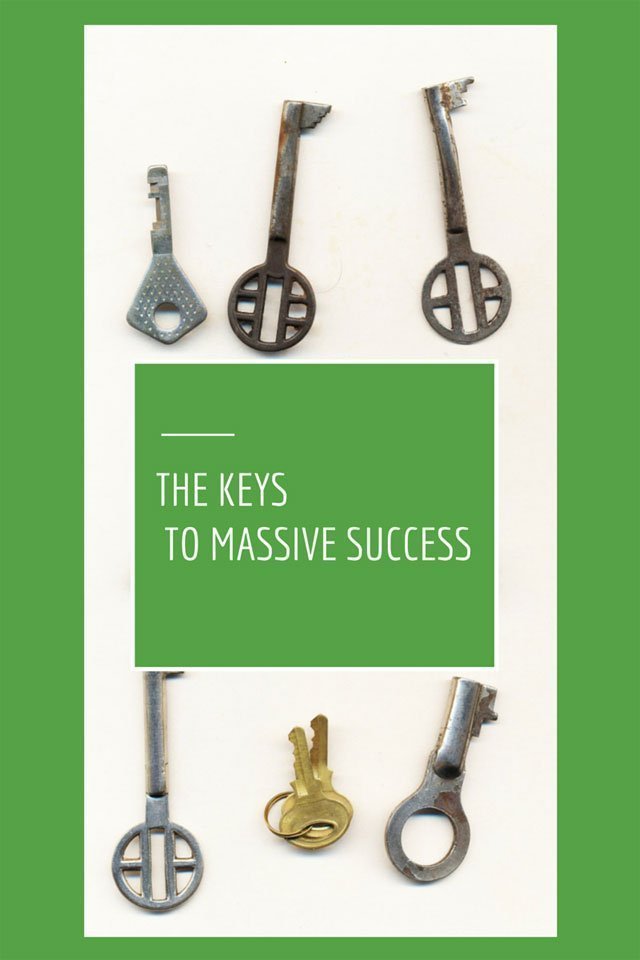I’ve always been the last-minute type—procrastinate, cram, collapse, repeat. Maybe you know the cycle. It works for a while… until it doesn’t. At some point, you realize the people actually getting results aren’t winging it on caffeine and deadline pressure—they’re repeating small, often boring habits that quietly stack up over time.
Success doesn’t come from a perfect plan. It comes from showing up consistently, even when you’d rather scroll, snack, or sleep. That’s the part nobody posts about—the part that actually moves the needle.
So, what’s the real difference between people who get traction and people who just stay busy?
It’s not talent. It’s not hustle.
It’s what they do every single day—even when it feels like nothing’s happening.
Let’s break that down.
Why Success Is Really Just Habit Repetition
You’ve probably heard it before: if you want to be successful, find someone who’s already done what you want to do and model them. But what are you really modeling? Their work ethic? Their mindset? Their morning routine?
No—what you’re modeling is their habits.
Behind every “overnight success” is a stack of unsexy, repeated behaviors. It’s not the highlight reel—it’s what they did on the days no one was watching. The book they read instead of bingeing Netflix. The extra rep at the gym. The boring, unpaid blog post that eventually ranked.
Research backs this up. Thomas C. Corley, who studied the daily habits of 233 wealthy and 128 poor individuals, found that success wasn’t about luck or IQ. It was about consistent behaviors repeated over years. Reading. Planning. Exercising. Avoiding time-wasters. The kind of stuff that sounds too simple to matter—until you realize it’s everything.
Think of habits like compound interest. You don’t see results at first, but they build on each other. Slowly. Quietly. And then suddenly—it tips.

Source: Business-Management-Degree.net
The Unsexy Reality Behind My Own Website Growth
Let me give you a real example—from my own blog.
In November, this site was averaging about 800 visitors a day. Not bad for a no-name blog. But I wanted more. So I decided to test something: I would publish and socially share one post every day for 30 days straight.
That was the goal—but the real transformation happened in the habits it forced.
Every day, I had to make time to research, write, edit, and publish. I started by shifting my workouts to early morning so I’d still have energy left to write at night. After the kids went to bed, I’d sit down with a bowl of carrots, some herbal tea, and my laptop. Just me and the work.
It wasn’t glamorous. Some nights I barely scraped a few paragraphs together. But I stuck to the habit. And by the end of the month?
The site was pulling 1,600 visitors a day.
Not because I “hacked” the algorithm. Not because one post went viral. Just because I showed up—again and again—with boring consistency.
Looking back now, I realize I should’ve flipped it. My brain was fresher in the morning. If I had done the writing then, and left my workouts for the evening, I probably would’ve produced stronger posts with less mental struggle. Lesson learned: do your highest-leverage work when your mind is sharpest—not just when it’s convenient.
Core Habits That Actually Move the Needle
There’s no shortage of “success habits” online. But most of them are either recycled, unrealistic, or feel like they belong to someone with a personal chef and a live-in assistant. Let’s talk about habits that actually make a difference—especially if you’re trying to build something real while juggling work, kids, and a brain that doesn’t always want to cooperate.
These aren’t hacks. These are the patterns I’ve seen matter most, both from my own wins and from studying what successful creators and entrepreneurs actually do.
🔹 Wake Up Early — To Do Your Most Important Work
This isn’t about sipping green juice while journaling in a robe. It’s about protecting your best hours for the one thing that will actually move your life forward.
For me, that’s writing. And after years of doing it in the evening when my brain was fried, I finally realized: mornings are when I’m sharp. That’s when the work should happen.
Don’t waste your best mental hours on other people’s priorities. Use them to build something that matters to you.
🔹 Review Your Goals Daily
Big goals fade fast if you don’t keep them visible. Whether you use a whiteboard, planner, or sticky note on your mirror—remind your brain daily what you’re working toward.
🔹 Move Your Body (Even a Little)
You don’t need a 90-minute routine. Just get your heart rate up and your body moving. It clears mental fog and builds resilience. I do strength and yoga because I sleep better and focus harder when I do.
🔹 Cut the Noise
Success takes focus. That means setting boundaries with TV, social media, and rabbit holes. I aim for less than an hour of non-intentional screen time a day—and even that feels like too much sometimes.
🔹 Learn While You Live
Whether I’m folding laundry, walking, or commuting—I use that time to listen to audiobooks or podcasts. Feeding your mind matters. Just make sure it’s not all “inspiration”—get practical, too.
🔹 Build a Better Circle
If your current circle isn’t lifting you up, build a new one. Join a group. Start one. Ask better questions. Growth multiplies when you’re around people doing hard things too.
🔹 Read Daily
30 minutes a day of focused reading adds up fast. One book a month is 12 a year. Most people don’t read one. And books hit differently than tweets or TikToks—they stay with you.
🔹 Track Your Habits Visibly
If it’s not tracked, it’s forgotten. Whether you use an app or cross off boxes with a marker—make your progress visual. Seeing a streak builds momentum.
What Makes a Habit Stick When You’re Not Naturally Consistent
I’m not one of those people who thrives on routine. I’m the opposite—I tend to swing between hyper-focus and burnout. I’ve started plenty of “daily” habits that lasted three days. So if you’re not naturally consistent, trust me: I get it.
But I’ve also learned a few things that finally made consistency possible. Not perfect. But possible.
🔹 Habit Stacking
I first heard this term from James Clear’s Atomic Habits, and it works. You take a habit you already do—like making coffee—and attach a new habit to it. For example:
“While the coffee brews, I write out my top three priorities.”
No extra time, just a smarter flow.
🔹 Track It—Even If It’s Ugly
I used to avoid tracking habits because I didn’t want to face my inconsistency. Now? I do it because I want to see the gaps. A simple calendar, app, or paper tracker works. What gets measured gets managed—even if the data makes you cringe at first.
🔹 Do the 70% Version
Some days I don’t have a full post in me. So I write a bad paragraph instead. The key is showing up. It’s not about perfection—it’s about keeping the streak alive.
Consistency isn’t doing it perfectly. It’s not disappearing when it’s messy.
🔹 Identity-Based Habits
This one shifted everything. Instead of saying, “I’m trying to grow a blog,” I started saying, “I’m the kind of person who publishes.” It’s subtle, but powerful. You stop negotiating with yourself because this is just who you are now.
🔹 Reward Yourself (Deliberately)
You don’t need to wait for a huge win to celebrate. Habit change is hard. When I hit a streak, I let myself offload something—order takeout, skip a workout, buy the fancy tea. Just something that signals: this effort counts.
Build One Keystone Habit and Let It Cascade
You don’t need 20 new habits. You need one habit that becomes the anchor for the rest.
It could be writing for 20 minutes. Stretching. Planning your day before the chaos starts. That one keystone habit does more than create results—it changes how you see yourself. It becomes proof that you follow through.
That’s what happened for me. Publishing daily was never about the algorithm—it was about becoming the kind of person who shows up. The kind of person who does the work, even when it’s boring or inconvenient.
So don’t overthink it. Pick one habit. Commit to it for the next 22 days. See what shifts—not just in your results, but in your self-trust.
If you want a habit to try, here’s one of my favorites: Fix Your Posture in 22 Days. It’s simple. It’s effective. And it builds momentum.
What’s the one habit you know would change your life if you just stopped negotiating with it?
FAQ: Habits of Success
🧠 How long does it take to build a new habit?
It depends. The popular “21 days” idea isn’t wrong—it’s just incomplete. According to a study from University College London, the average is 66 days to make a habit feel automatic. But consistency matters more than the calendar. Miss a day? No problem. Just don’t miss two.
⏰ What if I don’t have time for new habits?
Start micro. Shrink the habit down to two minutes or less. Read one paragraph. Do five push-ups. Open your writing app and type one sentence. The hardest part is starting—momentum does the rest.
🔁 Do I have to do the same habit every single day?
Not necessarily. Some habits (like publishing or deep work) might be 3–4x a week. What matters is that you have a consistent rhythm, not rigid perfection. It’s about showing up regularly enough to build trust with yourself.
🪞 What’s the most underrated success habit?
Honestly? Self-awareness. Knowing when you’re avoiding, when you’re stuck in loops, and when you’re wasting time pretending to be productive. Track your time for three days. You’ll see exactly where your future is going.


